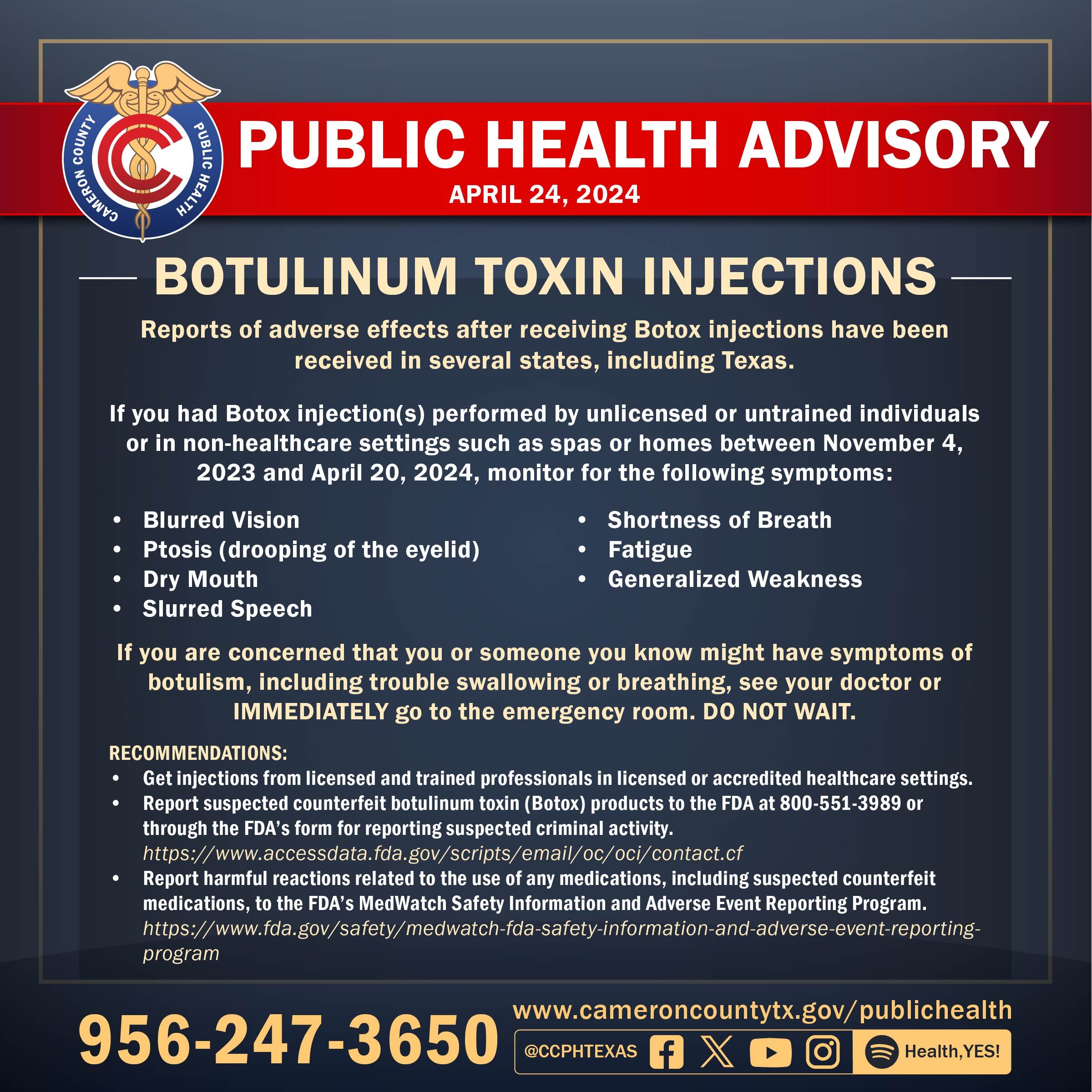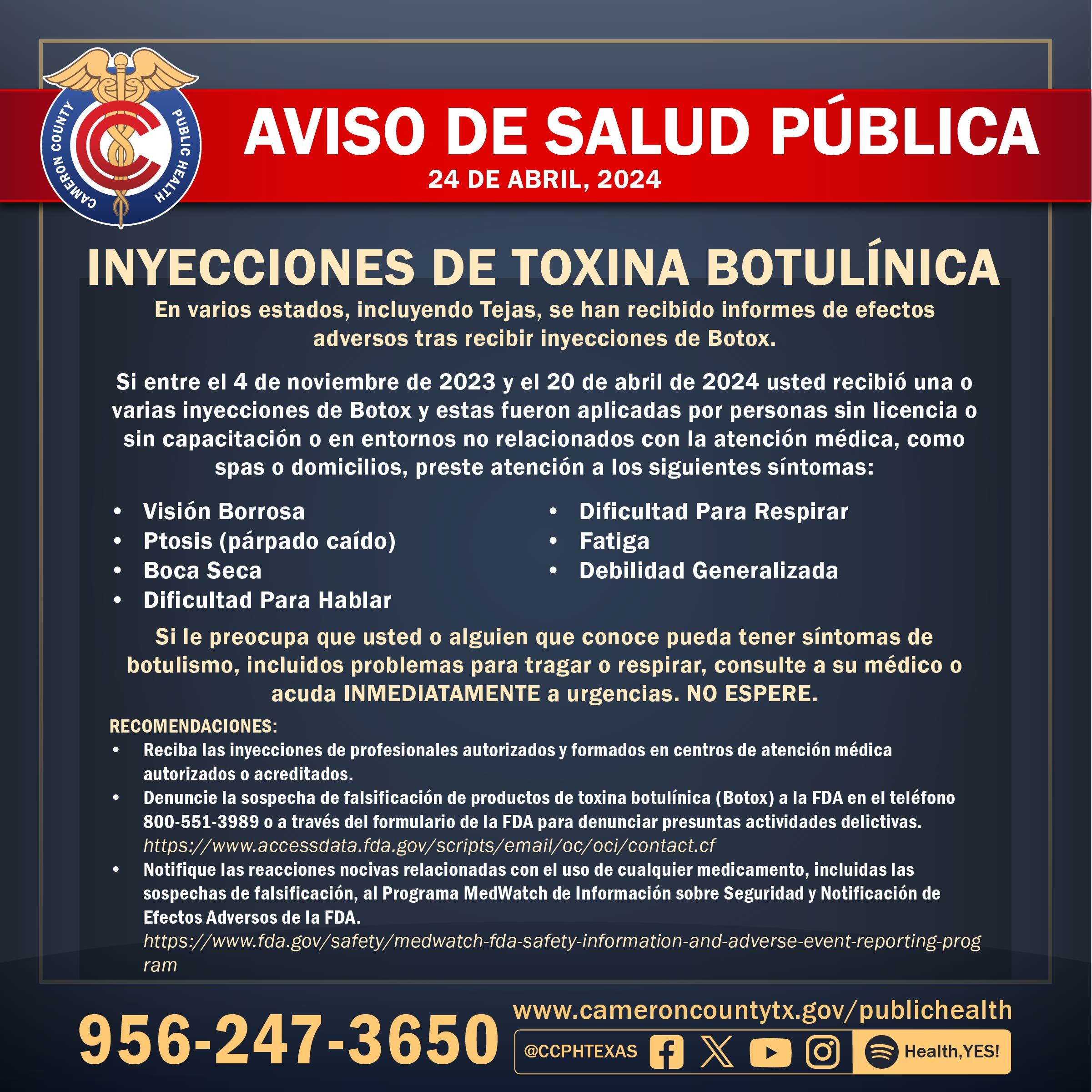

Mission Statement: To protect and prepare our community by developing the capacity of the local public health system to respond to a bio-terrorist event, infectious disease outbreak, and any other public health emergency, and to sustain a continuous preparedness program.
Cameron County Public Health – Public Health Emergency Preparedness (PHEP) Program is a program funded by the Texas Department of State Health Services (DSHS) to perform disease surveillance and public health emergency preparedness activities in support of the PHEP Cooperative Agreement from the Centers for Disease Control and Prevention. This includes building partnerships and collaborating within, between, and among public health and medical care partners, emergency management, law enforcement, school districts, and other partners in preparedness activities. Partnership opportunities may include, but are not limited to, plan development or updating, exercises, training, and responding to incidents, events, or emergencies.
Epidemiology is the study of health in populations to understand the causes and patterns of health and illness. The Epidemiology Division of the PHP Program conducts surveillance (the collection and analysis of data) and performs epidemiological investigations to follow disease trends, assess risk of exposure, discover the common source of illness, and put effective preventive measures into place.
Health care providers, hospitals, laboratories, schools, and others are required to report a person or persons who are suspected of having a notifiable condition to the local health authority or the department and provide all information known to them concerning the illness and physical condition of such person or persons.
Most notifiable conditions (see list below), or other illnesses that may be of public health significance, should be reported directly to the Cameron County Public Health using the CCEPI-1 form below.
Paper reporting forms can be obtained by calling the Cameron County Public Health – Public Health Preparedness Program at 1-866-326-3397.
The following table describes some of the resources available to healthcare providers and the general public can obtain more information regarding the Zika Virus:
Zika virus is primarily spread to people through mosquito bites. The virus can be spread from mother to child. Spread of the virus through blood transfusion and sexual contact has also been reported.
Most people infected with the virus have mild or no symptoms. For those who do develop symptoms, illness is generally mild and typically lasts a few days to a week. The most common symptoms of Zika virus disease are fever, rash, joint pain, and conjunctivitis (red eyes).
Severe disease requiring hospitalization is uncommon and fatalities are rare. An increase in Guillain-Barré syndrome was noted during an outbreak of Zika virus in French Polynesia in 2014. An increase in microcephaly was noted during an outbreak of Zika virus in Brazil in 2015.
Zika virus is transmitted to people primarily through the bite of an infected Aedes species mosquito (Ae. aegypti and Ae. albopictus). These are the same mosquitoes that spread dengue and chikungunya.
– Traveling To Areas with Zika
Most Texas cases of Zika are related to travel. People were infected while visiting areas where Zika is being spread and then diagnosed after returning home. To help prevent infection, DSHS recommends:
During your trip –
Travelers to areas affected by Zika should avoid mosquito exposure.
After your trip –
All travelers returning to Texas from areas affected by Zika should avoid mosquito bites for 21 days following their return or following the onset of illness.
As a part of the prevention and mitigation efforts, the Texas Department of State Health Services has produced the Zika Virus Preparedness and Response Plan. The Zika Virus Preparedness and Response Plan describes what actions DSHS will take to successfully respond to Zika virus. The Zika Virus Preparedness and Response Plan is aligned with the Centers for Disease Control and Prevention’s (CDC) phased approach.
Cameron County Public Health | PHEP
1390 W. Expressway 83
San Benito, Texas 78586
Phone: (956) 247-3685 | Fax: 1-866-326-3316
After Hours & 24/7 Hotline1-866-326-3397
Joe. G. Rivera & Aurora de la Garza | Cameron County Annex Building
1390 W. Expressway 83
San Benito, Texas 78586
Ph: 956 247-3685